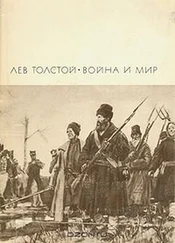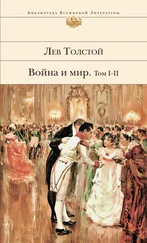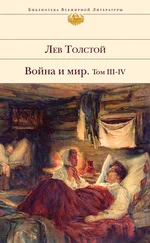| On retiring to her own room, she sat in an armchair, her eyes fixed on a miniature portrait of her son on the lid of a snuffbox, while the tears kept coming into her eyes. |
Уйдя к себе, она, сидя на кресле, не спускала глаз с миниатюрного портрета сына, вделанного в табакерке, и слезы навертывались ей на глаза. |
| Anna Mikhaylovna, with the letter, came on tiptoe to the countess' door and paused. |
Анна Михайловна с письмом на цыпочках подошла к комнате графини и остановилась. |
| "Don't come in," she said to the old count who was following her. "Come later." And she went in, closing the door behind her. |
- Не входите, - сказала она старому графу, шедшему за ней, - после, - и затворила за собой дверь. |
| The count put his ear to the keyhole and listened. |
Граф приложил ухо к замку и стал слушать. |
| At first he heard the sound of indifferent voices, then Anna Mikhaylovna's voice alone in a long speech, then a cry, then silence, then both voices together with glad intonations, and then footsteps. Anna Mikhaylovna opened the door. |
Сначала он слышал звуки равнодушных речей, потом один звук голоса Анны Михайловны, говорившей длинную речь, потом вскрик, потом молчание, потом опять оба голоса вместе говорили с радостными интонациями, и потом шаги, и Анна Михайловна отворила ему дверь. |
| Her face wore the proud expression of a surgeon who has just performed a difficult operation and admits the public to appreciate his skill. |
На лице Анны Михайловны было гордое выражение оператора, окончившего трудную ампутацию и вводящего публику для того, чтоб она могла оценить его искусство. |
| "It is done!" she said to the count, pointing triumphantly to the countess, who sat holding in one hand the snuffbox with its portrait and in the other the letter, and pressing them alternately to her lips. |
- C'est fait! [Дело сделано!] - сказала она графу, торжественным жестом указывая на графиню, которая держала в одной руке табакерку с портретом, в другой - письмо и прижимала губы то к тому, то к другому. |
| When she saw the count, she stretched out her arms to him, embraced his bald head, over which she again looked at the letter and the portrait, and in order to press them again to her lips, she slightly pushed away the bald head. |
Увидав графа, она протянула к нему руки, обняла его лысую голову и через лысую голову опять посмотрела на письмо и портрет и опять для того, чтобы прижать их к губам, слегка оттолкнула лысую голову. |
| Vera, Natasha, Sonya, and Petya now entered the room, and the reading of the letter began. |
Вера, Наташа, Соня и Петя вошли в комнату, и началось чтение. |
| After a brief description of the campaign and the two battles in which he had taken part, and his promotion, Nicholas said that he kissed his father's and mother's hands asking for their blessing, and that he kissed Vera, Natasha, and Petya. |
В письме был кратко описан поход и два сражения, в которых участвовал Николушка, производство в офицеры и сказано, что он целует руки maman и papa, прося их благословения, и целует Веру, Наташу, Петю. |
| Besides that, he sent greetings to Monsieur Schelling, Madame Schoss, and his old nurse, and asked them to kiss for him "dear Sonya, whom he loved and thought of just the same as ever." |
Кроме того он кланяется m-r Шелингу, и m-mе Шос и няне, и, кроме того, просит поцеловать дорогую Соню, которую он всё так же любит и о которой всё так же вспоминает. |
| When she heard this Sonya blushed so that tears came into her eyes and, unable to bear the looks turned upon her, ran away into the dancing hall, whirled round it at full speed with her dress puffed out like a balloon, and, flushed and smiling, plumped down on the floor. |
Услыхав это, Соня покраснела так, что слезы выступили ей на глаза. И, не в силах выдержать обратившиеся на нее взгляды, она побежала в залу, разбежалась, закружилась и, раздув баллоном платье свое, раскрасневшаяся и улыбающаяся, села на пол. |
| The countess was crying. |
Графиня плакала. |
| "Why are you crying, Mamma?" asked Vera. "From all he says one should be glad and not cry." |
- О чем же вы плачете, maman? - сказала Вера. -По всему, что он пишет, надо радоваться, а не плакать. |
| This was quite true, but the count, the countess, and Natasha looked at her reproachfully. |
Это было совершенно справедливо, но и граф, и графиня, и Наташа - все с упреком посмотрели на нее. |
| "And who is it she takes after?" thought the countess. |
"И в кого она такая вышла!" подумала графиня. |
| Nicholas' letter was read over hundreds of times, and those who were considered worthy to hear it had to come to the countess, for she did not let it out of her hands. |
Письмо Николушки было прочитано сотни раз, и те, которые считались достойными его слушать, должны были приходить к графине, которая не выпускала его из рук. |
| The tutors came, and the nurses, and Dmitri, and several acquaintances, and the countess reread the letter each time with fresh pleasure and each time discovered in it fresh proofs of Nikolenka's virtues. |
Приходили гувернеры, няни, Митенька, некоторые знакомые, и графиня перечитывала письмо всякий раз с новым наслаждением и всякий раз открывала по этому письму новые добродетели в своем Николушке. |
| How strange, how extraordinary, how joyful it seemed, that her son, the scarcely perceptible motion of whose tiny limbs she had felt twenty years ago within her, that son about whom she used to have quarrels with the too indulgent count, that son who had first learned to say "pear" and then "granny," that this son should now be away in a foreign land amid strange surroundings, a manly warrior doing some kind of man's work of his own, without help or guidance. |
Как странно, необычайно, радостно ей было, что сын ее - тот сын, который чуть заметно крошечными членами шевелился в ней самой 20 лет тому назад, тот сын, за которого она ссорилась с баловником-графом, тот сын, который выучился говорить прежде: "груша", а потом "баба", что этот сын теперь там, в чужой земле, в чужой среде, мужественный воин, один, без помощи и руководства, делает там какое-то свое мужское дело. |
| The universal experience of ages, showing that children do grow imperceptibly from the cradle to manhood, did not exist for the countess. |
Весь всемирный вековой опыт, указывающий на то, что дети незаметным путем от колыбели делаются мужами, не существовал для графини. |
| Her son's growth toward manhood, at each of its stages, had seemed as extraordinary to her as if there had never existed the millions of human beings who grew up in the same way. |
Возмужание ее сына в каждой поре возмужания было для нее так же необычайно, как бы и не было никогда миллионов-миллионов людей, точно так же возмужавших. |
| As twenty years before, it seemed impossible that the little creature who lived somewhere under her heart would ever cry, suck her breast, and begin to speak, so now she could not believe that that little creature could be this strong, brave man, this model son and officer that, judging by this letter, he now was. |
Как не верилось 20 лет тому назад, чтобы то маленькое существо, которое жило где-то там у ней под сердцем, закричало бы и стало сосать грудь и стало бы говорить, так и теперь не верилось ей, что это же существо могло быть тем сильным, храбрым мужчиной, образцом сыновей и людей, которым он был теперь, судя по этому письму. |
| "What a style! How charmingly he describes!" said she, reading the descriptive part of the letter. "And what a soul! |
- Что за штиль, как он описывает мило! - говорила она, читая описательную часть письма. - И что за душа! |
| Not a word about himself.... Not a word! |
Об себе ничего... ничего! |
| About some Denisov or other, though he himself, I dare say, is braver than any of them. |
О каком-то Денисове, а сам, верно, храбрее их всех. |
| He says nothing about his sufferings. |
Ничего не пишет о своих страданиях. |



